Conflict
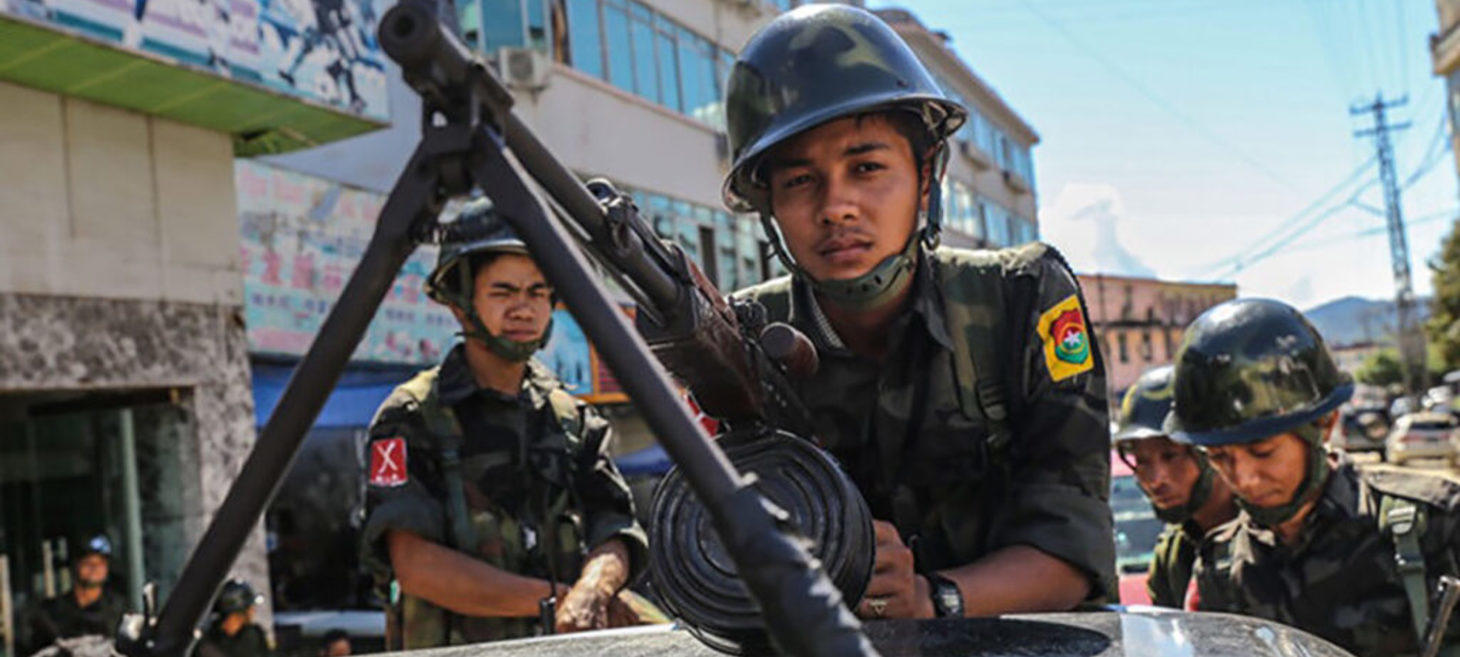
KIA Seizes Town on Chinese Border
The Kachin Independence Army (KIA) has successfully seized control of a town on the Chinese border, marking a significant strategic victory against Myanmar's military junta. This development highlights the ongoing conflict and instability in the region, as ethnic armed groups continue to challenge the junta's authority. The capture of the town not only disrupts the junta's control but also potentially affects cross-border trade and relations with China. The KIA's actions are part of a broader resistance movement against the military regime, which has been met with increasing violence and unrest since the coup.
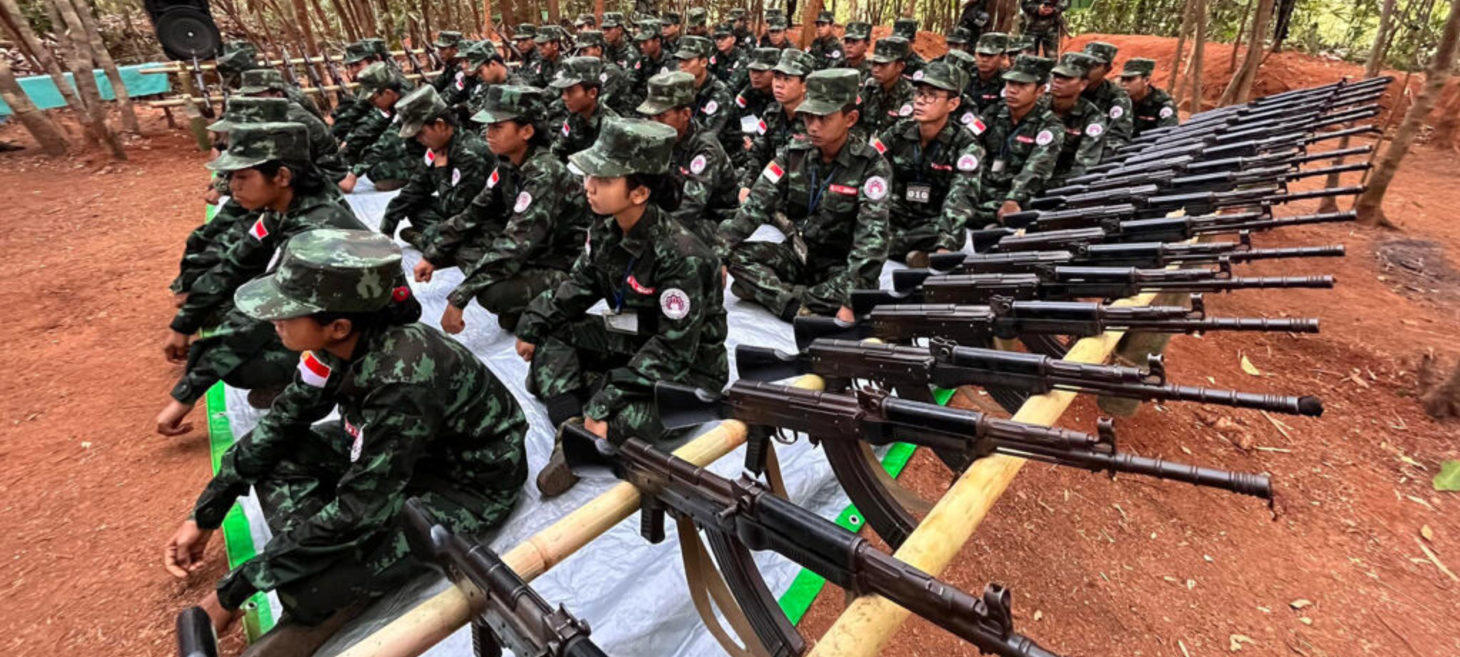
Myanmar’s New Network Insurgency
Myanmar is experiencing a shift towards a "network insurgency," characterized by decentralized and flexible resistance movements against the military junta. This new form of insurgency involves a diverse array of groups, including ethnic armed organizations, local militias, and urban guerrillas, who are increasingly coordinating their efforts through informal networks rather than centralized command structures. This approach allows for greater adaptability and resilience in the face of the junta's military superiority. The insurgency's networked nature complicates the junta's efforts to suppress it, as it can quickly adapt and reorganize in response to government actions, posing a significant challenge to the regime's attempts to maintain control.
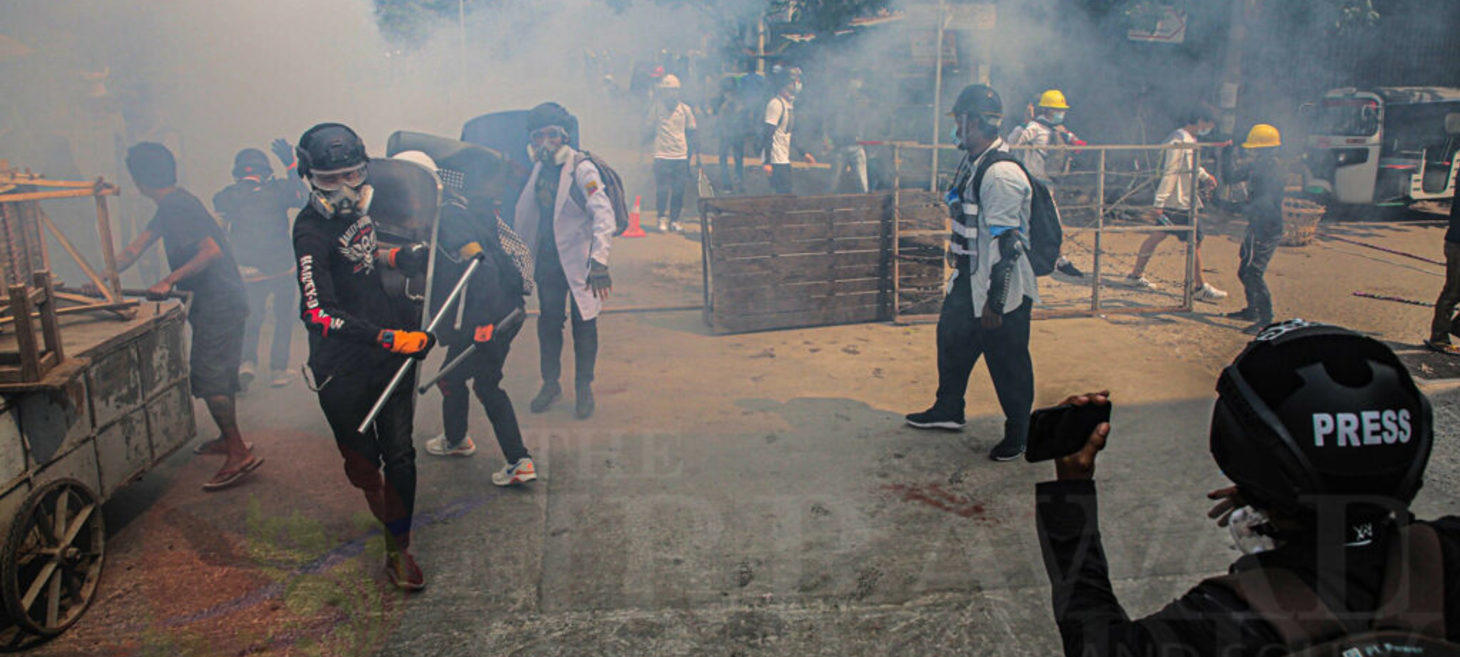
Myanmar Ranks 10th for Impunity in Killing Journalists
Myanmar ranks as the 10th worst country for impunity in the killing of journalists, according to the Committee to Protect Journalists' Global Impunity Index. This ranking highlights the severe risks faced by journalists in Myanmar, where perpetrators of such crimes often go unpunished. The situation has worsened since the military coup in February 2021, with increased threats, arrests, and violence against media personnel. The lack of accountability for these crimes contributes to a climate of fear and self-censorship among journalists, undermining press freedom and the public's right to information in Myanmar.
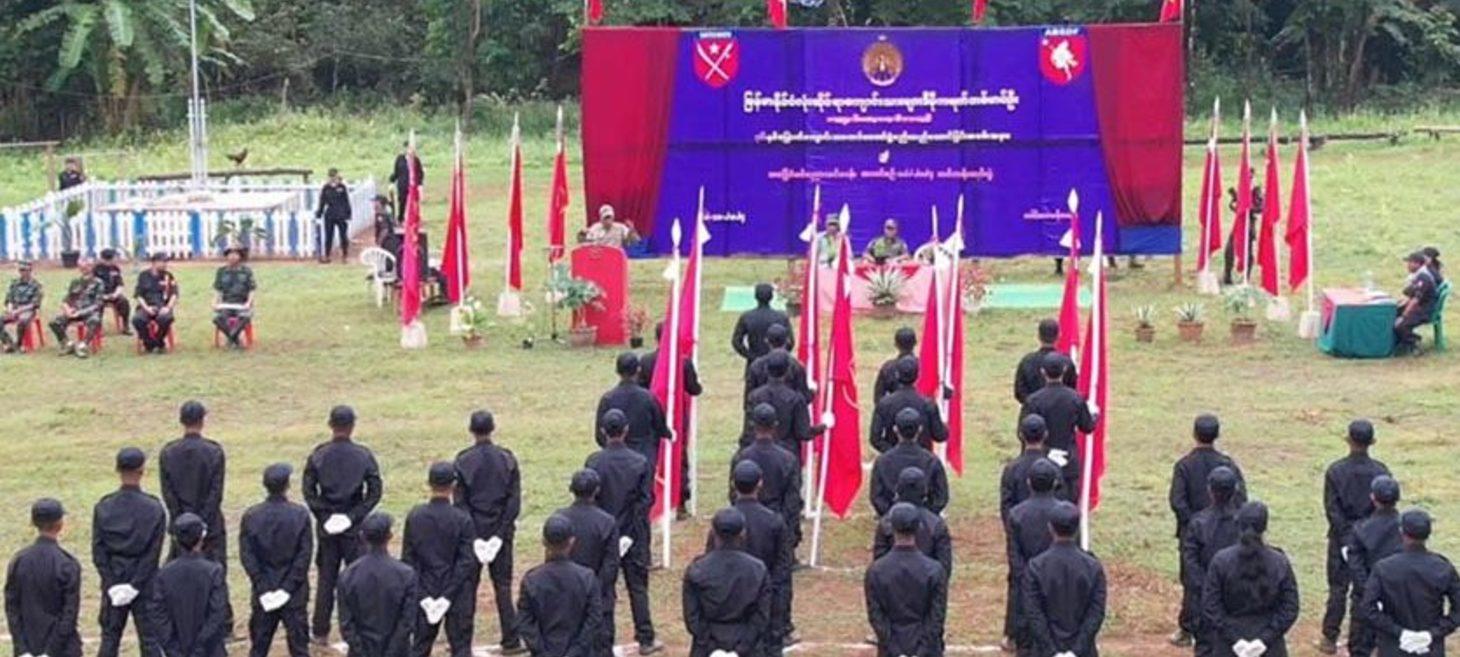
Kachin Independence Army seizes control of China border town; DVB investigation into online incitement
The Kachin Independence Army (KIA) has seized control of the China-Burma border town of Phimaw in Chipwi Township, following the abandonment of the last military outpost by troops. This strategic victory includes the capture of three headquarters of the Kachin Border Guard Force, which were previously held by pro-military militias. Phimaw, located in Kachin Special Region 1, is a significant hub for rare earth mining, valued at $1.4 billion USD last year. In response to the KIA's actions, Chinese authorities have blocked trade at the Phimaw border station. This development is part of a broader context of ongoing conflict and resistance against the Myanmar military junta, with various groups, including the KIA, challenging the regime's control and impacting regional stability and trade.

Myanmar military arrests film critic, alleging threat to stability
The Myanmar military has arrested Shein Htet Aung, also known as Vee Htet Kumar, a film critic from Yangon, accusing him of inciting instability after he criticized a film poster's portrayal of people of Indian descent. Shein Htet Aung, a Hindu resident of Hlaing Township, expressed his disapproval on Facebook regarding the poster, which included a stereotypical mimicry of the language or accent of Myanmar's Indian minority. This arrest marks the first instance of someone being detained for their opinions about a film since the military coup. His family lost contact with him after he visited the Khaweichan School for the Blind, highlighting the ongoing crackdown on freedom of expression in Myanmar.
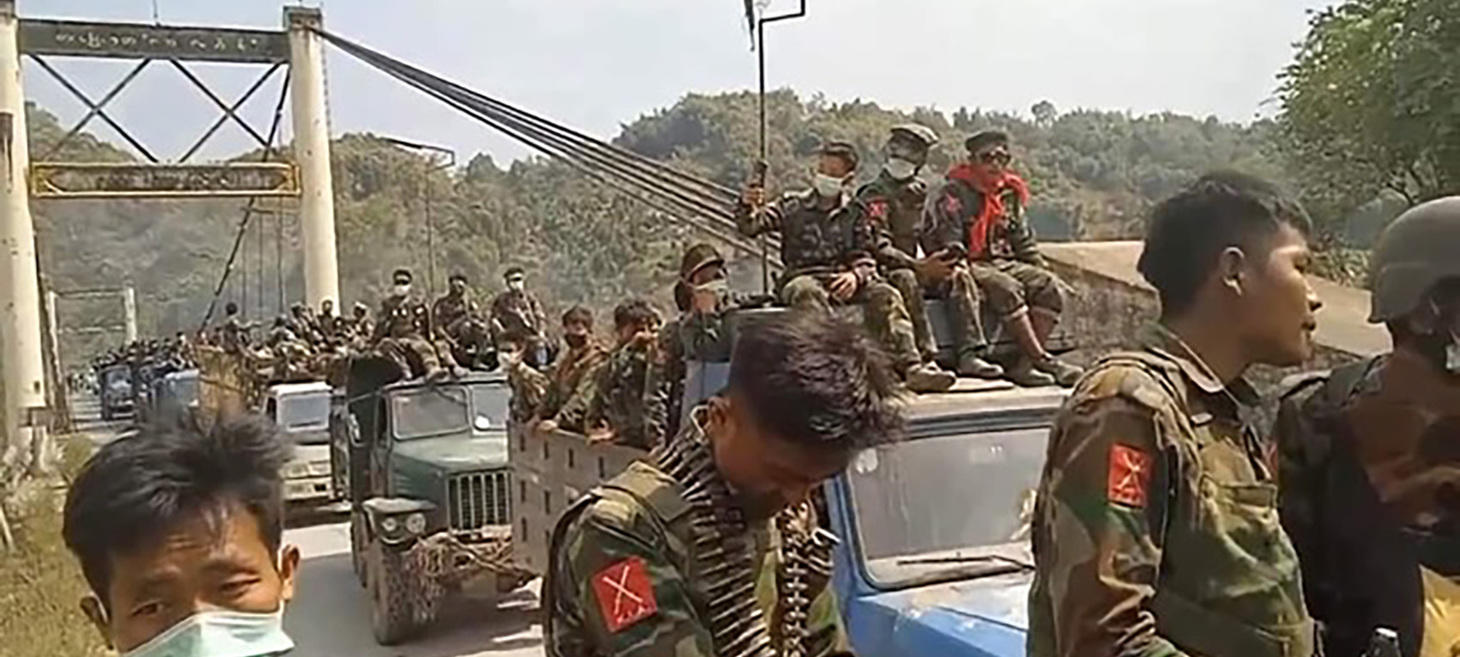
KIA Seizes Final Border Force HQ Despite Chinese Pressure
The Kachin Independence Army (KIA) has successfully seized the last headquarters of the Border Guard Force (BGF) in Kachin State, despite facing pressure from China to halt its offensive. This strategic victory marks a significant advancement for the KIA in its ongoing conflict against Myanmar's military junta. The capture of the BGF headquarters underscores the KIA's determination to challenge the junta's control in the region, even as China, which shares a border with Kachin State, expresses concerns over the stability and security implications of the conflict. The KIA's actions reflect the broader resistance efforts by ethnic armed groups against the junta's rule.
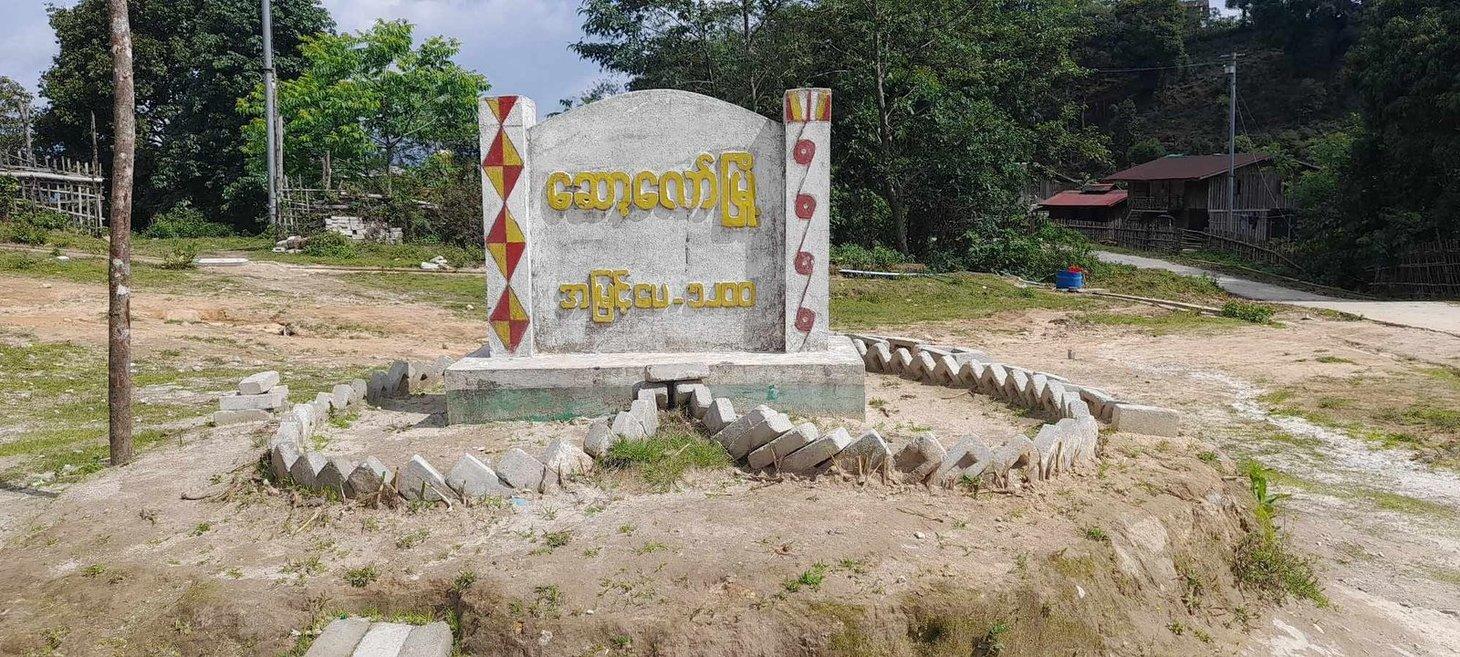
KIA takes Hsawlaw Town in Kachin State
The Kachin Independence Army (KIA) has captured the junta's Infantry Battalion 298 base and taken full control of Hsawlaw Town in Chipwi District, Kachin State, after four days of fighting that concluded on October 2, 2024. This victory follows the KIA's earlier capture of Chipwi Town on September 29, 2024. The KIA's offensive resulted in the seizure of numerous weapons and ammunition, and the elimination of junta forces in the area, which was previously secured by the New Democratic Army Kachin (NDA-K) Border Guard Force. The KIA's actions are part of a broader strategy to challenge the junta's control in Kachin State, particularly in regions with valuable rare earth mining operations. Analysts suggest that the KIA may next target Pangwa Town, further intensifying the conflict in the region.
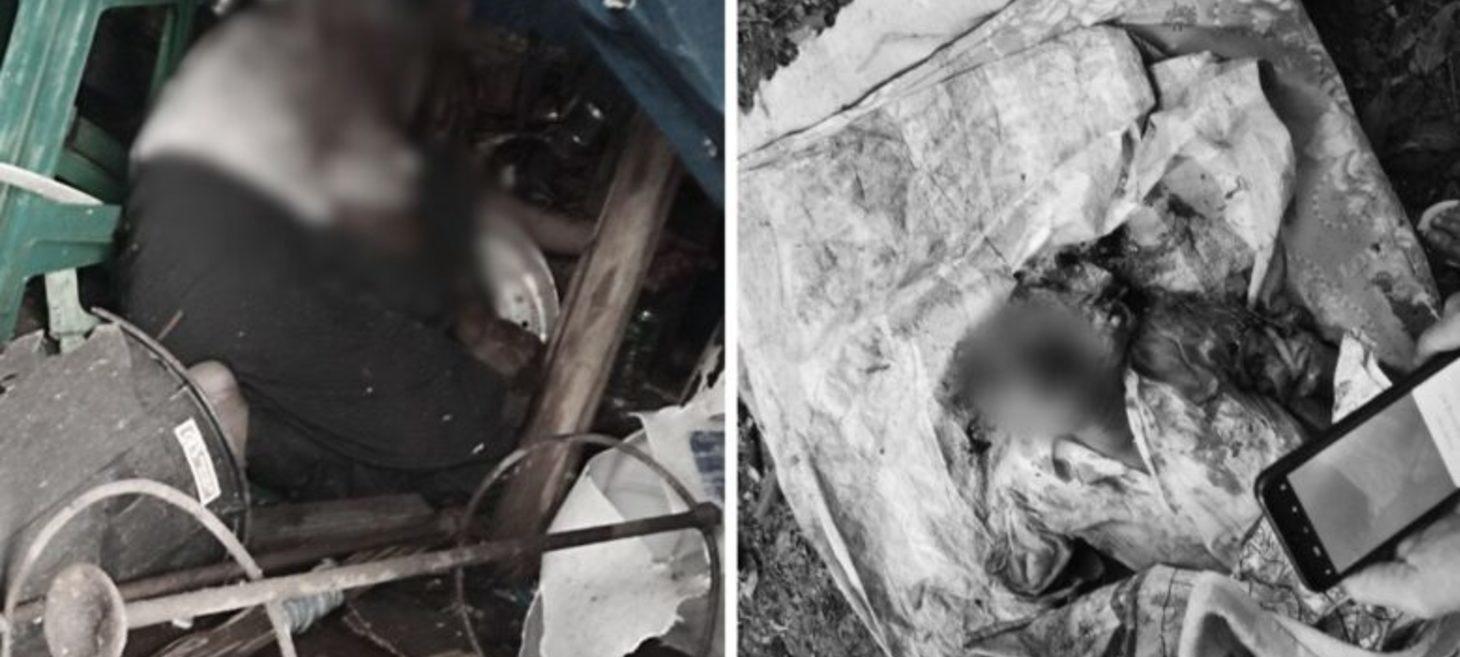
Junta Airstrike Kills Three in Naungcho Township, Shan State
A junta airstrike in Hsammahse Village, Naungcho Township, Shan State, resulted in the deaths of three civilians, including a mother of a newborn, a 70-year-old man, and a 50-year-old man. The attack, which involved 500-pound bombs, also injured six others, including two monks, and destroyed a sugar factory and several houses. The following day, another airstrike in Naungcho Township caused further destruction. The Shan Human Rights Foundation condemned these attacks, highlighting the junta's targeting of civilians and monks as violations of human rights. This incident follows a previous airstrike on October 27 in the same township, which killed a 60-year-old man, injured a woman, and destroyed homes, underscoring the ongoing violence and human rights abuses in the region.
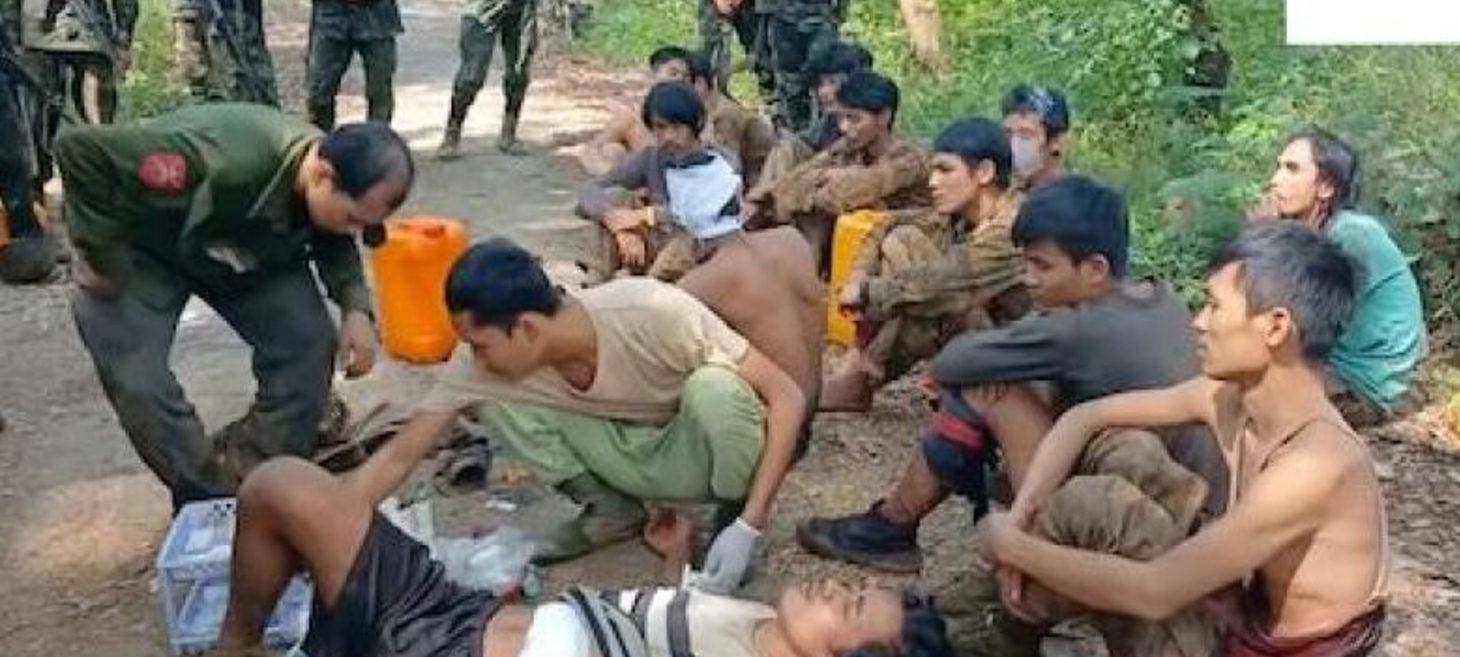
KNU Kills 16 Junta Soldiers, Captures 17 in Hpapun Town
On November 3, 2024, the Karen National Liberation Army (KNLA), the armed wing of the Karen National Union (KNU), along with other Karen defense forces, killed 16 junta soldiers and captured 17 more, including a deputy battalion commander, in Hpapun Town, Karen State. This occurred after the KNLA took control of the Khawpoke military base following a six-month siege. The remaining junta soldiers attempted to flee to the Hpapun Tactical Operations Command but were intercepted by the KNLA and Karen defense forces, leading to intense fighting. The captured soldiers received medical treatment and food from the resistance forces. The KNLA continues to pursue the remaining junta troops in the area, demonstrating the ongoing resistance efforts against the military junta in Karen State.
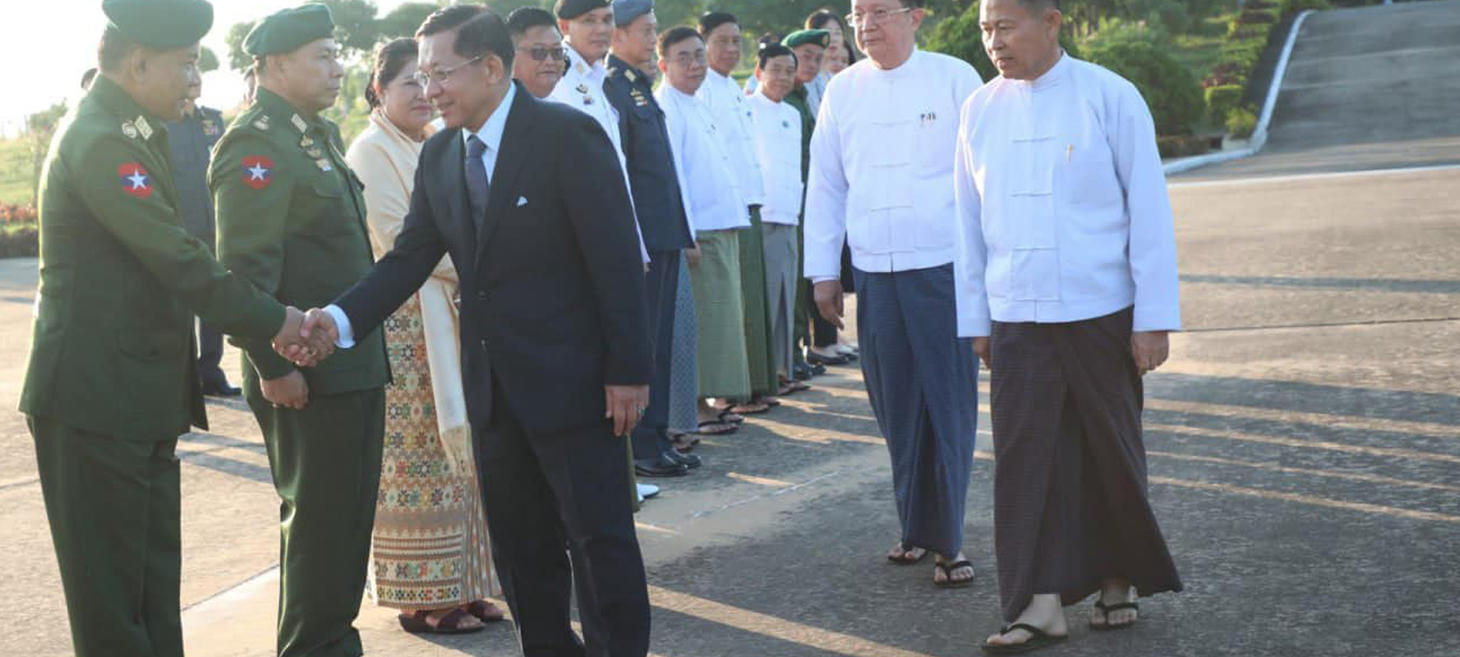
Myanmar Junta Foils Drone Attack on Min Aung Hlaing
Myanmar's military junta successfully thwarted a drone attack targeting Senior General Min Aung Hlaing in Naypyidaw, the capital. The attack, orchestrated by anti-coup forces, involved approximately 30 drones aiming at key military sites, including Min Aung Hlaing's residence and military headquarters. The junta reported that 13 drones were shot down, with no casualties or damage reported. This incident highlights the ongoing conflict in Myanmar, where opposition groups, including the National Unity Government's People's Defence Force, continue to challenge the military regime through increasingly sophisticated tactics. Despite the junta's claims of thwarting the attack, the opposition views this as a significant step forward in their resistance efforts. The conflict has resulted in widespread displacement and humanitarian needs, with the military facing accusations of human rights abuses.
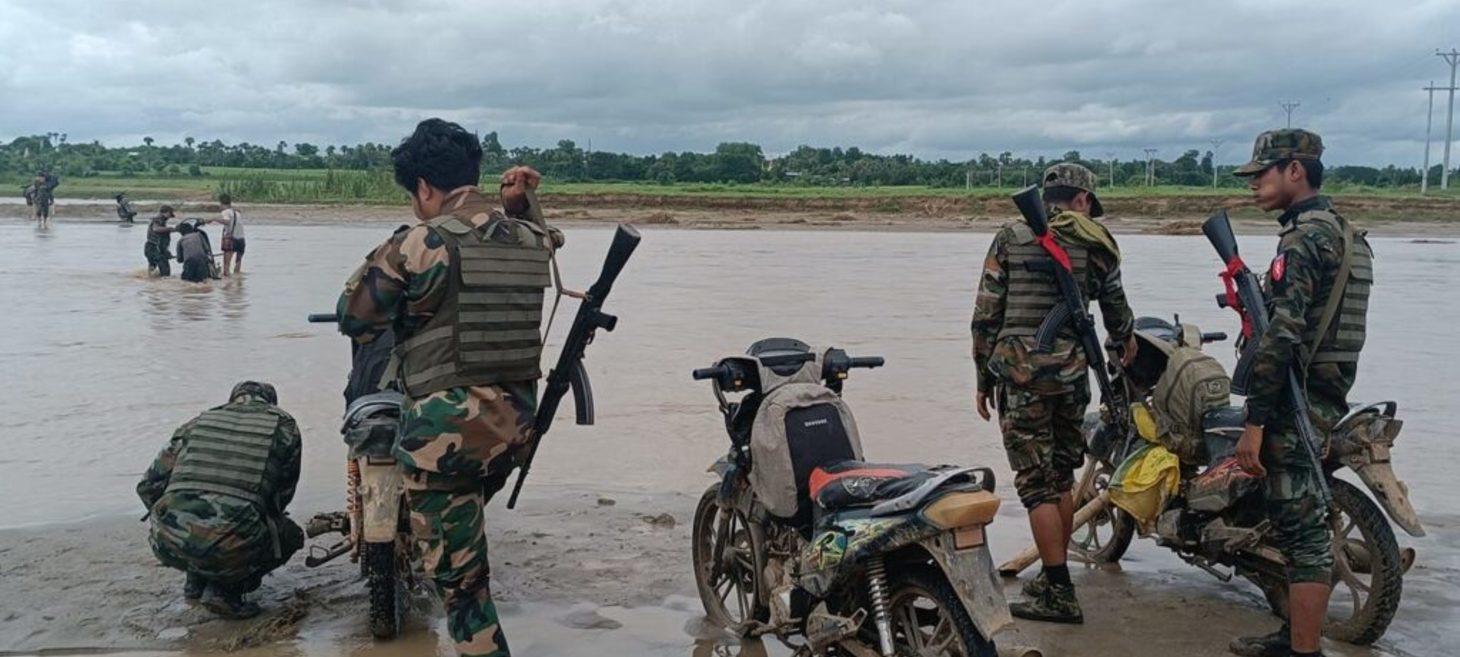
Anti-regime allies make push to capture key town near Sagaing-Kachin border
A coalition of anti-regime forces, including the People’s Defence Force (PDF), the All Burma Students’ Democratic Front (ABSDF), and the Kachin Independence Army, has intensified efforts to capture Indaw, a strategic town in northern Sagaing Region near the Kachin State border. Since mid-August, these groups have successfully seized all but one of the junta's positions in the town. After a pause in hostilities in October, fighting resumed on November 1, focusing on the last remaining stronghold, the "Japanese Cave Hill Camp," located at the town's highest point. The resistance forces have encircled this camp and are conducting heavy attacks, although they have suffered casualties and losses in the process. This offensive highlights the ongoing conflict and the determination of anti-regime groups to gain control over key territories in Myanmar.
Conscription
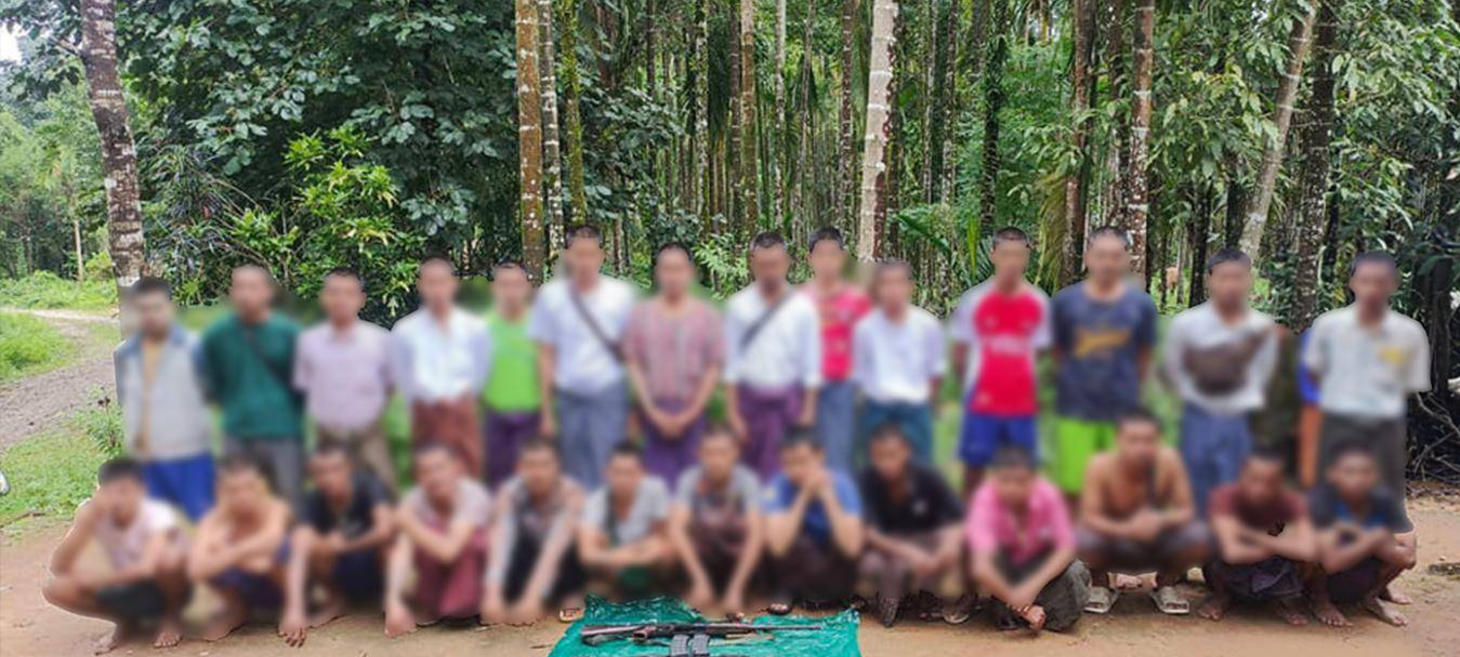
A daring, determined escape from the Myanmar army
Ko Phyo, a 29-year-old from Dawei, Myanmar, was forced into military service despite his opposition to the junta, which seized power in February 2021. After being arrested in Thailand for lacking proper documentation, he was deported back to Myanmar and conscripted into the army. Despite the oppressive circumstances, Ko Phyo managed a daring escape from military custody, highlighting the desperation and resistance among those unwillingly caught in the junta's grasp. His story underscores the broader struggle against the military regime, which continues to face resistance from various groups within the country.
Crime & Narcotics
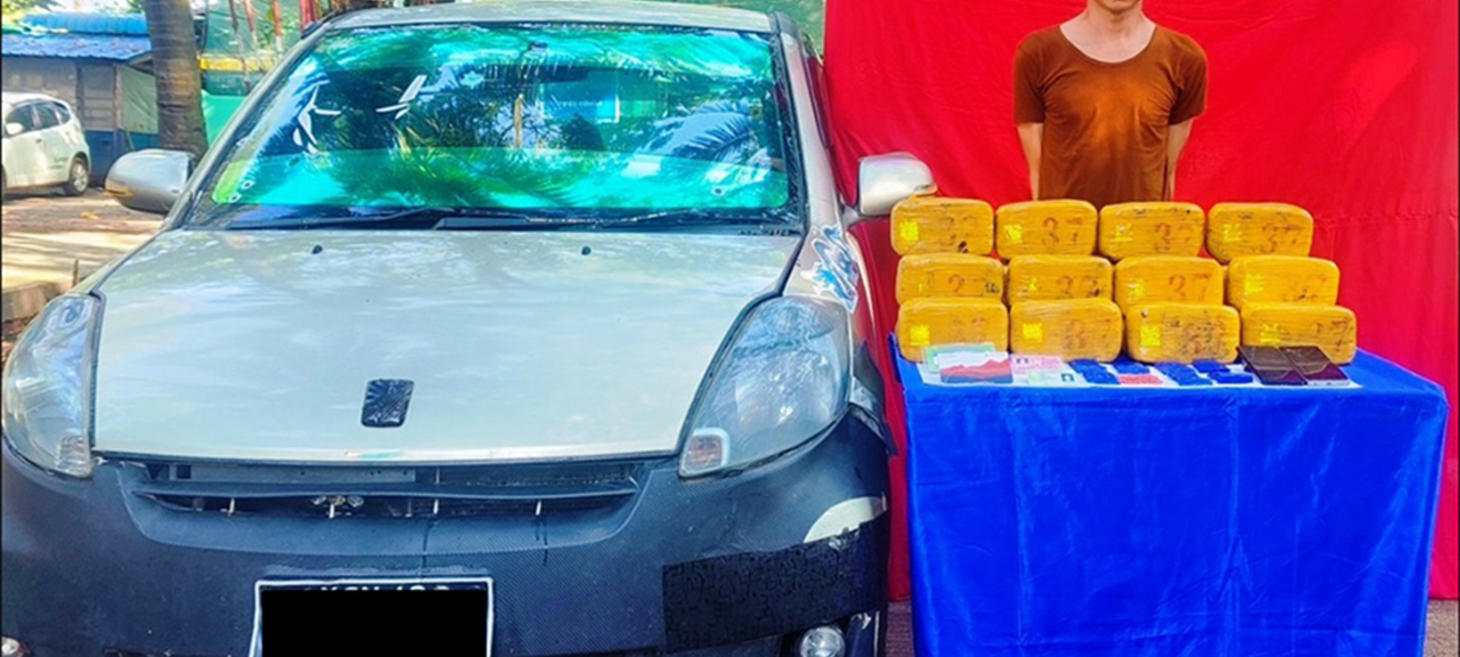
Drugs seized in various townships
Myanmar authorities have conducted a series of drug busts across various townships, resulting in significant seizures of illegal substances. These operations, carried out by local law enforcement, targeted areas known for drug trafficking activities. The seizures included large quantities of methamphetamine tablets and other narcotics, highlighting the ongoing challenges Myanmar faces in combating drug production and distribution. The authorities continue to intensify their efforts to curb the drug trade, which remains a major issue affecting the country's social and economic stability. These actions are part of a broader strategy to address the pervasive drug problem within Myanmar's borders.
Economy
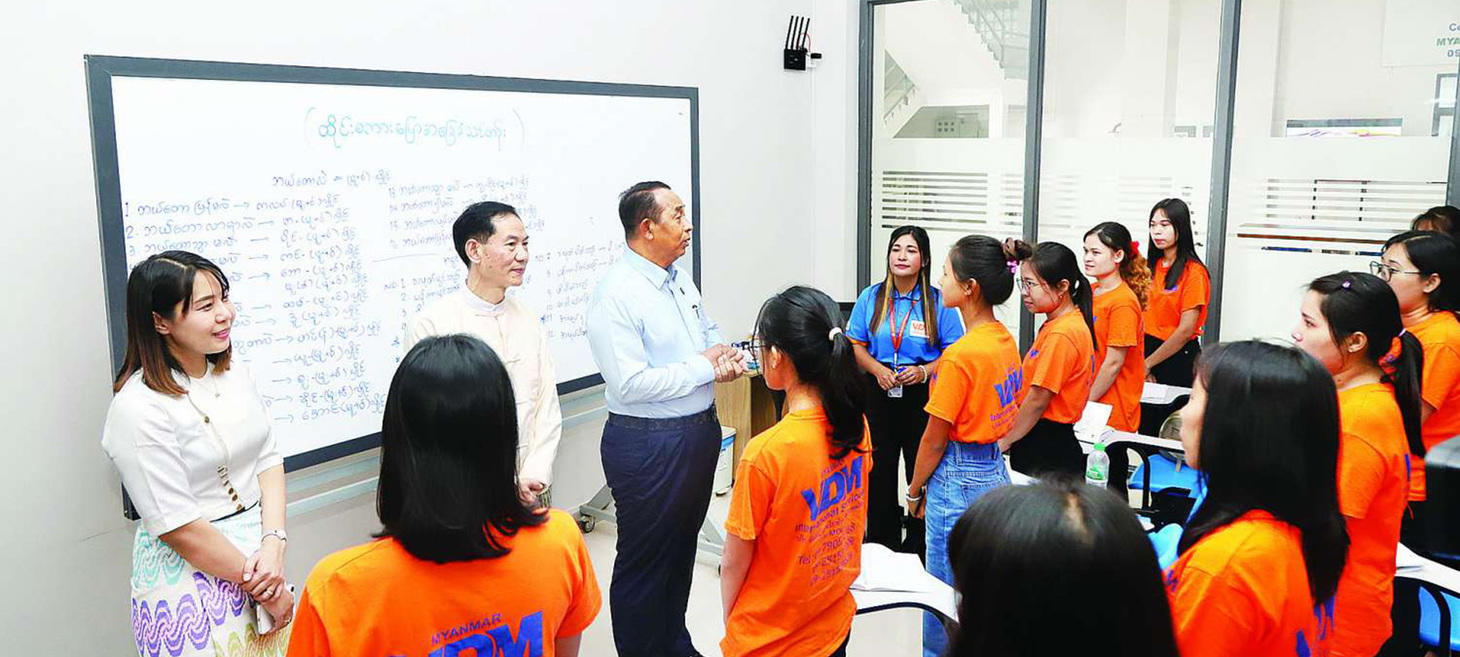
Cash-Strapped Myanmar Junta Doubles Down on Foreign Remittances
The Myanmar junta, facing financial difficulties, is intensifying efforts to control foreign remittances by implementing stricter regulations and policies. This move is part of a broader strategy to stabilize the country's economy, which has been severely impacted by international sanctions and internal conflicts. The junta is focusing on capturing foreign currency inflows to bolster its reserves, as it struggles with a cash shortage and declining foreign investment. These measures include mandating that remittances be converted into the local currency at official rates, which are often less favorable than market rates, thereby affecting the income of Myanmar citizens relying on money sent from abroad.
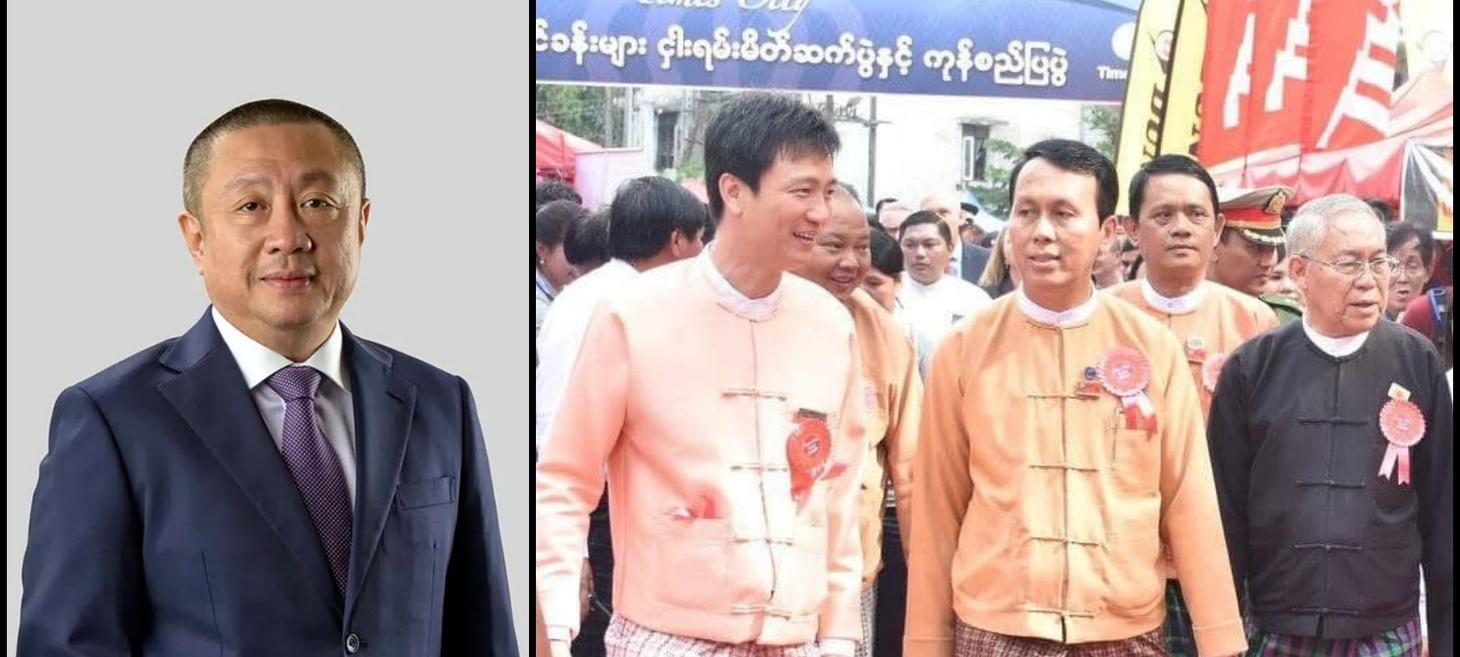
Myanmar Junta-Linked Businessmen Head to China Ahead of Min Aung Hlaing’s Visit
Myanmar junta-linked businessmen have traveled to China ahead of a visit by the junta leader, Min Aung Hlaing. This trip is seen as an effort to strengthen economic ties and secure Chinese investment amid international sanctions and economic isolation faced by Myanmar's military regime. The businessmen's visit aims to pave the way for discussions on infrastructure projects and other economic collaborations that could bolster the junta's financial standing. This move highlights the junta's reliance on China as a key economic partner and its attempts to leverage this relationship to mitigate the impact of global sanctions and maintain its grip on power.
Ethnic Issues
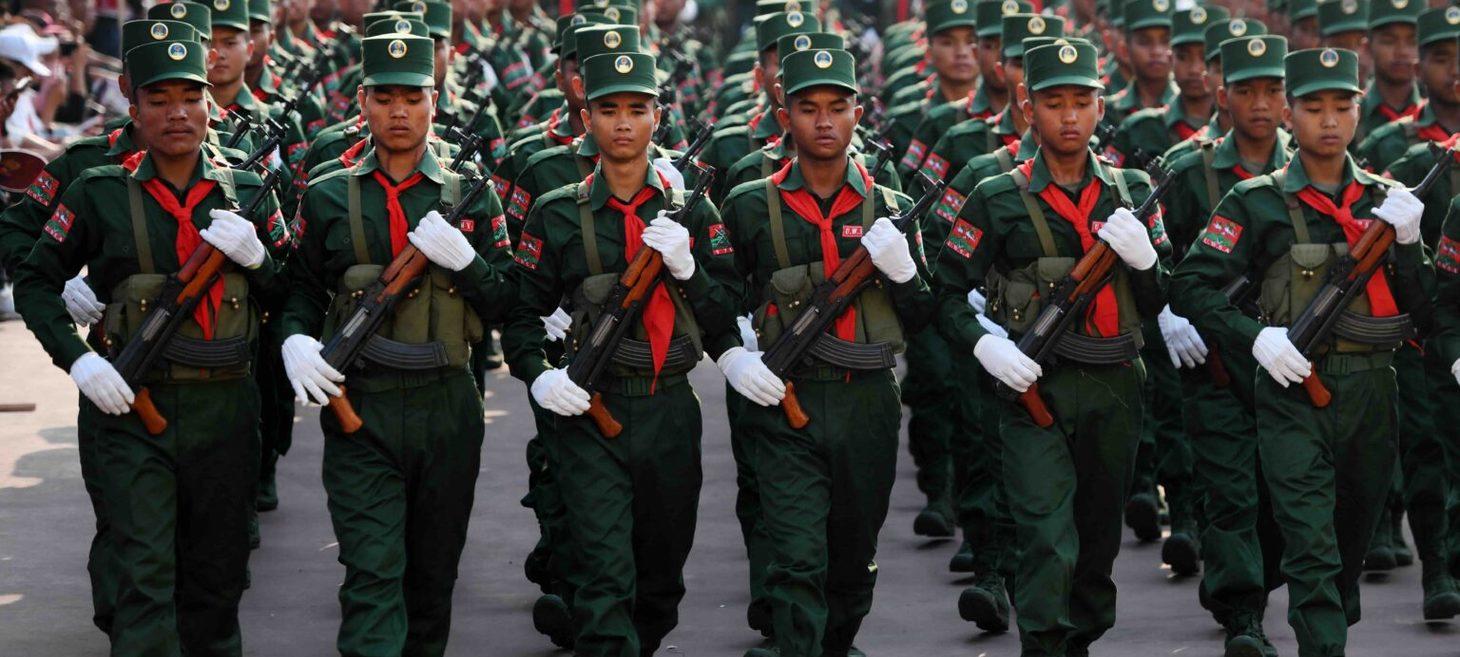
Wa occupiers’ recruitment practices alarm locals in northern Shan State township
Residents of Tangyan Township in northern Shan State are alarmed by the recruitment practices of the United Wa State Army (UWSA), Myanmar's largest ethnic armed group, which has occupied the area since early July. The UWSA, having taken control from the Myanmar military, has established its own administrative system and begun registering young male residents for military service. Local sources report that armed UWSA members are going door-to-door in villages, collecting names and selecting recruits through a lottery system. This has raised concerns among civilians about the potential for indefinite conscription periods, as the UWSA claims its presence is to maintain peace in the region.
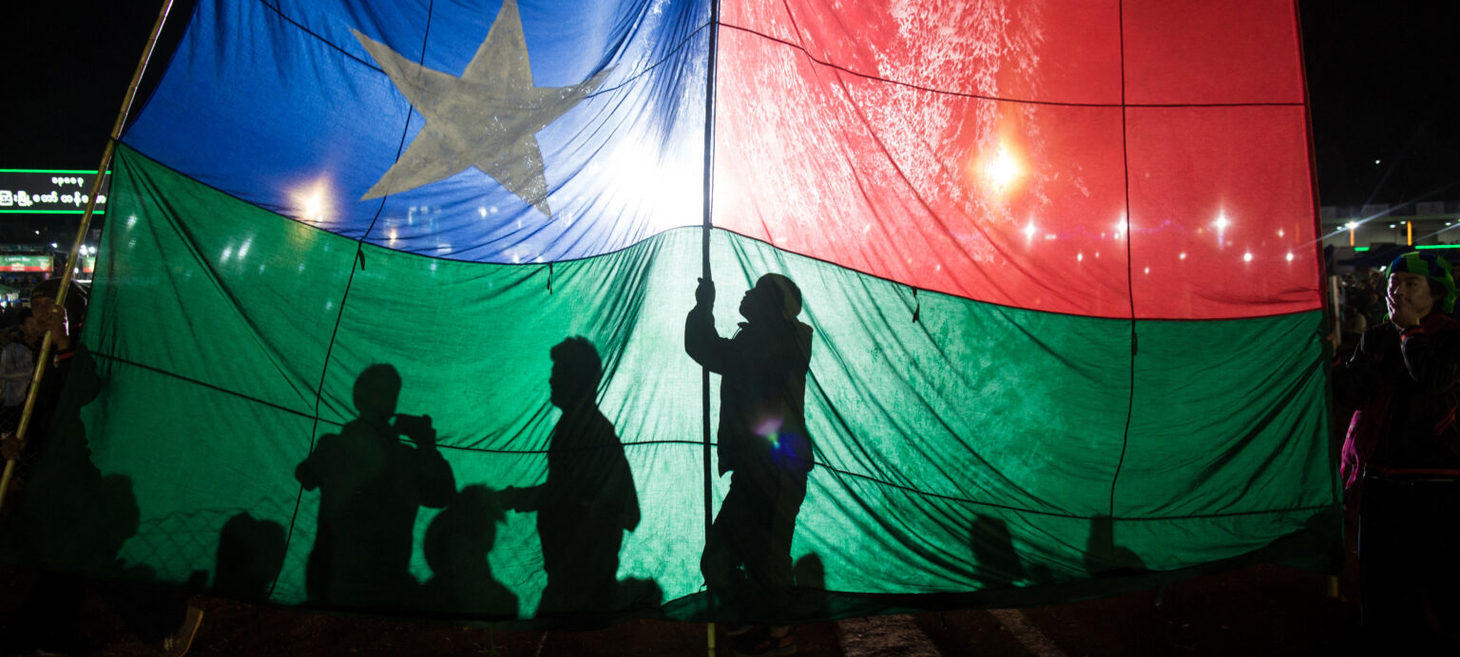
‘Who should we follow?’: Factionalism plagues Pa-O politics
Factionalism is deeply affecting Pa-O politics in Myanmar, as the Pa-O National Liberation Organization (PNLO) faces internal divisions and external challenges. The PNLO's decision to join the armed resistance against the military junta has led to a leadership crisis and a split within the organization. This division is exacerbated by historical rivalries with the regime-aligned Pa-O National Organization (PNO), which enjoys support from Buddhist nationalists and has been gaining influence by providing stability and public services in the region. The PNO's charismatic leader, Aung Kham Hti, has bolstered its popularity, while the PNLO struggles with internal dissent and the challenge of maintaining unity in its fight against the junta. The ongoing conflict and political fragmentation highlight the complex dynamics within Pa-O society, where ethnic and political loyalties are deeply intertwined.
Foreign Affairs
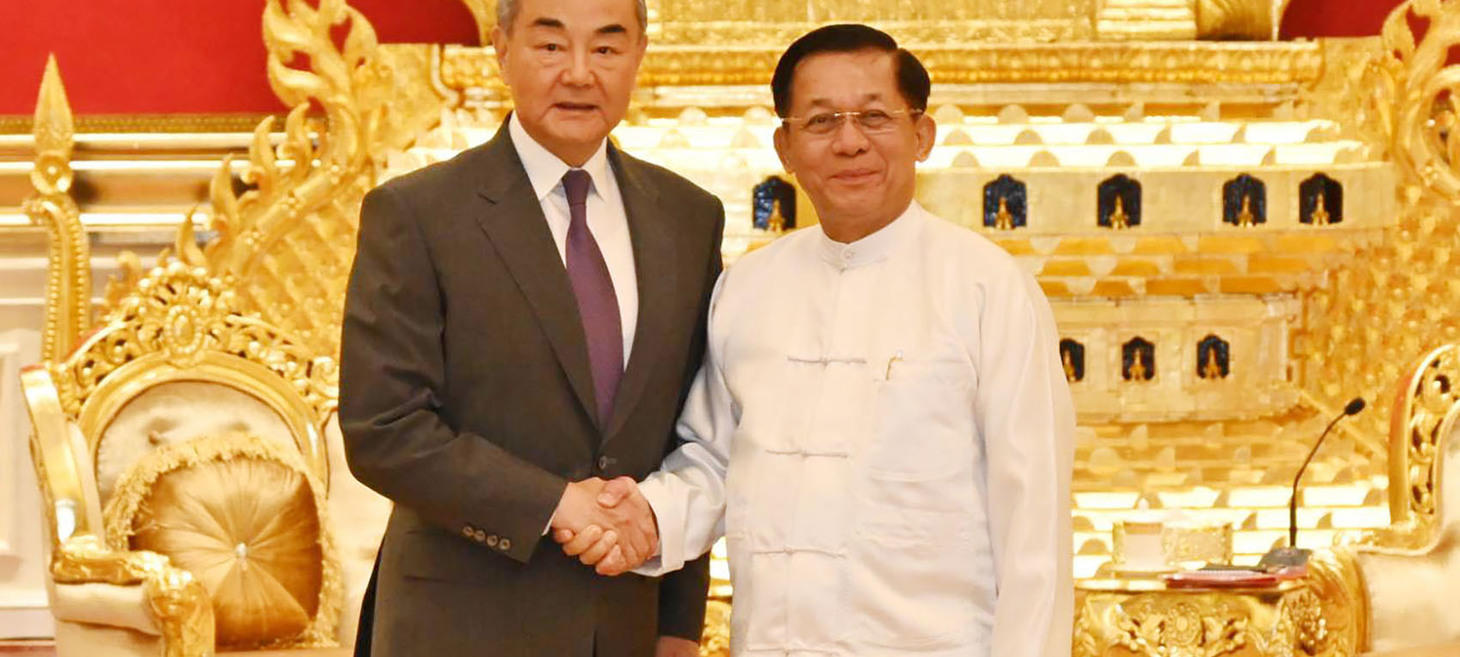
Attack on Consulate in Myanmar Rattles China
An attack on a Chinese consulate in Myanmar has heightened tensions and concerns for China, which has significant economic interests in the region. The incident underscores the growing anti-China sentiment among Myanmar's population, who perceive China as supportive of the military junta. This perception is fueled by China's investments and political ties with the regime, leading to increased hostility towards Chinese entities. The attack has prompted China to call for enhanced security measures to protect its citizens and assets in Myanmar, reflecting the broader geopolitical challenges and the delicate balance China must maintain in its relationship with the junta and the Myanmar populace.
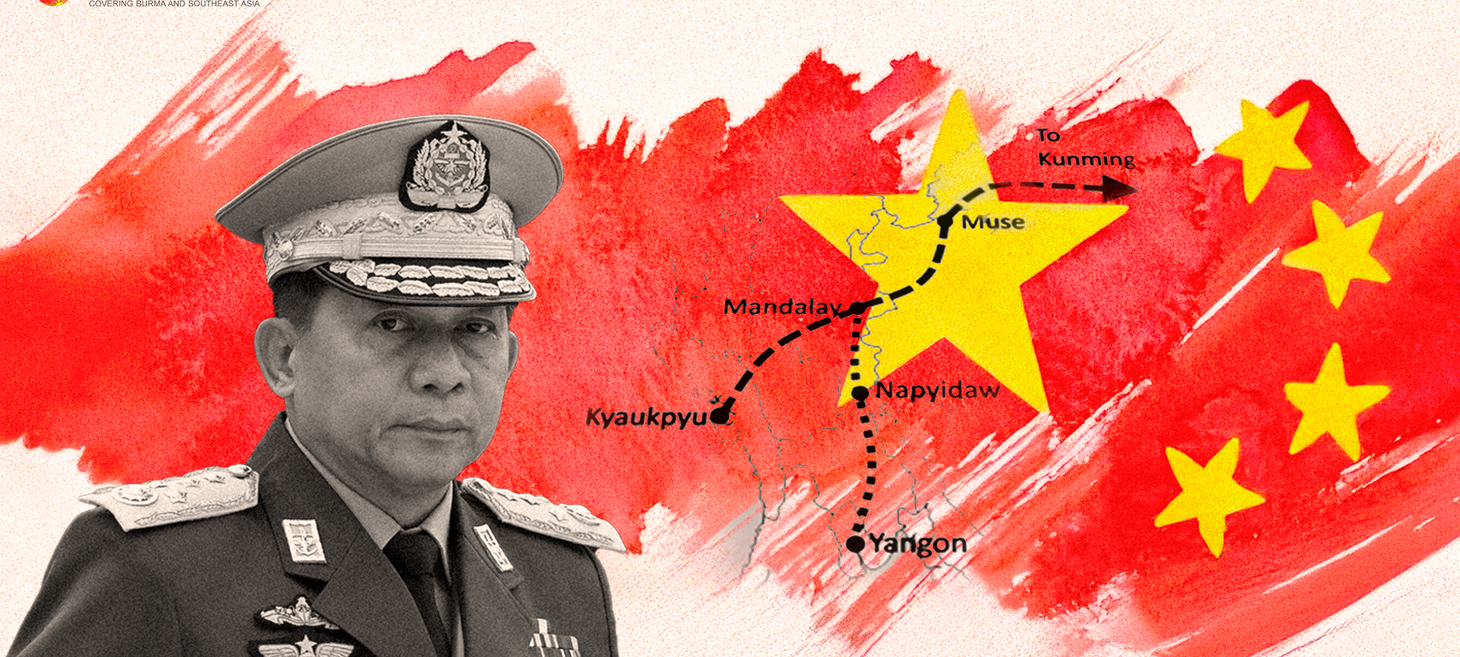
Min Aung Hlaing Goes to China: From Pariah to Legitimacy… For Now
Min Aung Hlaing's visit to China marks a significant shift in his international standing, moving from being a global pariah to gaining temporary legitimacy. This visit underscores China's strategic interests in Myanmar, as Beijing seeks to stabilize its southern neighbor to protect its investments and influence in the region. The trip highlights China's pragmatic approach to foreign relations, prioritizing its geopolitical and economic interests over human rights concerns. Despite international condemnation of Myanmar's military regime, China's engagement with Min Aung Hlaing reflects its broader strategy of supporting regimes that align with its interests, regardless of their international reputation. This development could have implications for regional dynamics, as China continues to assert its influence in Southeast Asia.
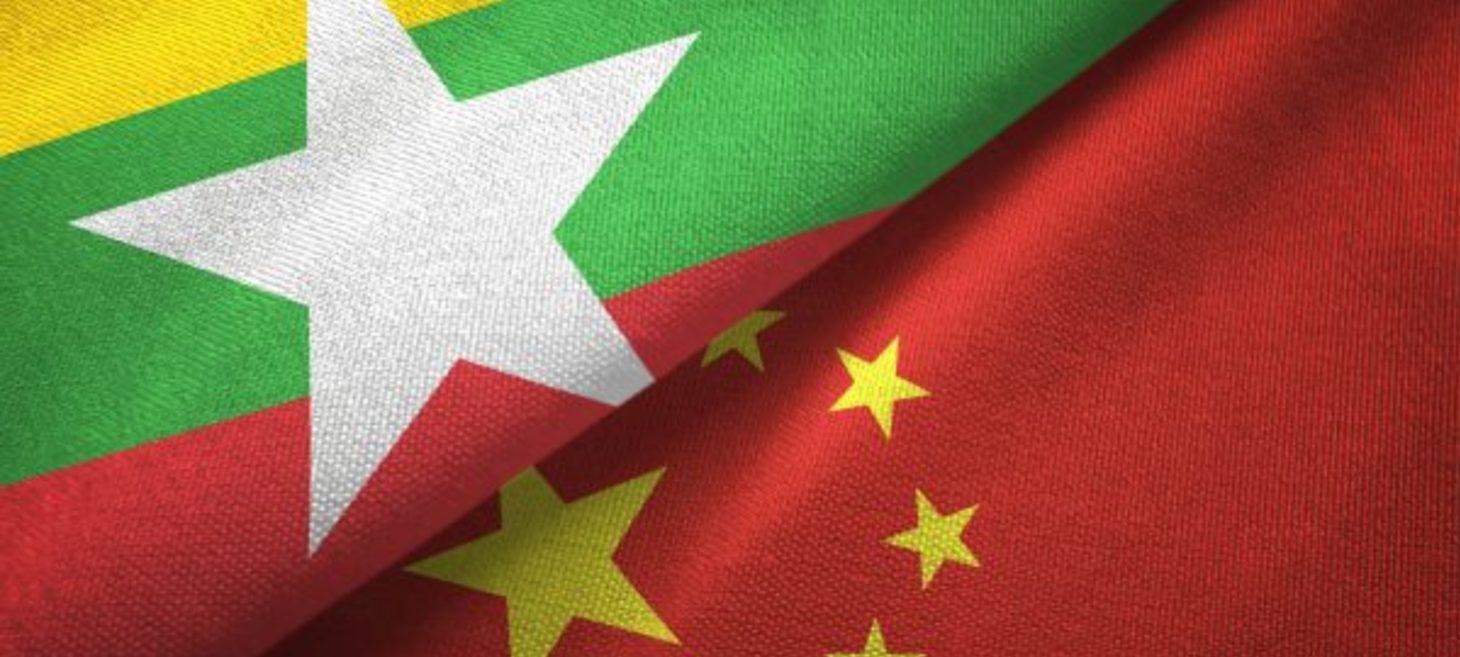
Myanmar Junta Chief Embarks on First China Visit Since Coup
Myanmar's junta chief, Min Aung Hlaing, embarked on his first official visit to China since the February 2021 coup, attending regional summits and meeting with officials from China, Cambodia, Laos, and Vietnam. This visit marks a potential shift in China's policy towards Myanmar, as Beijing seeks to stabilize the region amidst the ongoing civil war and the military's significant territorial losses to ethnic armed groups. While China has not fully embraced Min Aung Hlaing with bilateral honors, the visit suggests increased support for the junta's State Administration Council (SAC) and its planned 2025 elections. However, this move risks alienating the Myanmar populace, who largely oppose the military regime. The visit also reflects China's strategic interests in maintaining influence and securing its economic investments in Myanmar, despite the potential backlash from supporting the controversial military leadership.
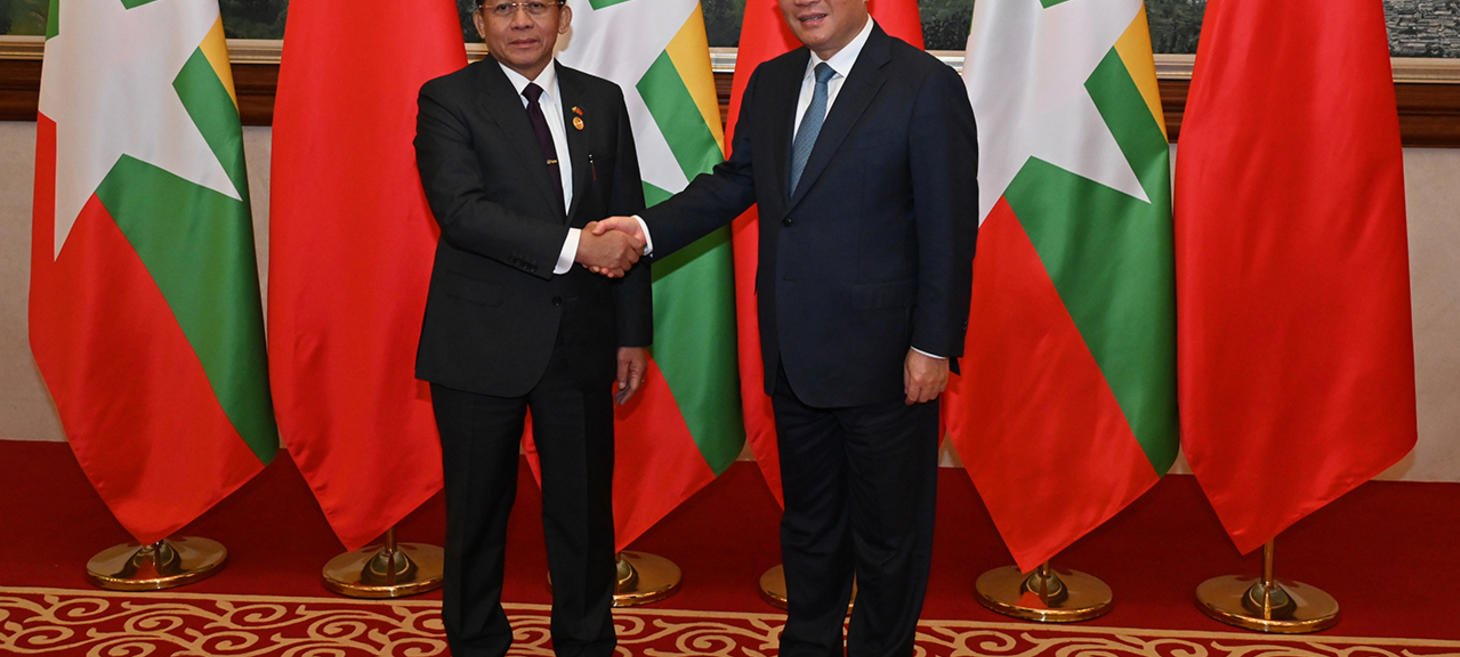
Myanmar and China pledge to strengthen ties and cooperation
Myanmar and China have pledged to strengthen their bilateral ties and cooperation during a meeting between Myanmar's State Administration Council (SAC) and Chinese officials. The discussions focused on enhancing collaboration in various sectors, including trade, investment, energy, and infrastructure development. Both countries emphasized the importance of mutual respect and support for each other's core interests, with China reaffirming its commitment to Myanmar's sovereignty and territorial integrity. The meeting also highlighted ongoing projects under the Belt and Road Initiative, aiming to boost economic growth and connectivity in the region. This renewed commitment to cooperation reflects the strategic partnership between Myanmar and China, as they seek to navigate regional challenges and foster economic development.
General News
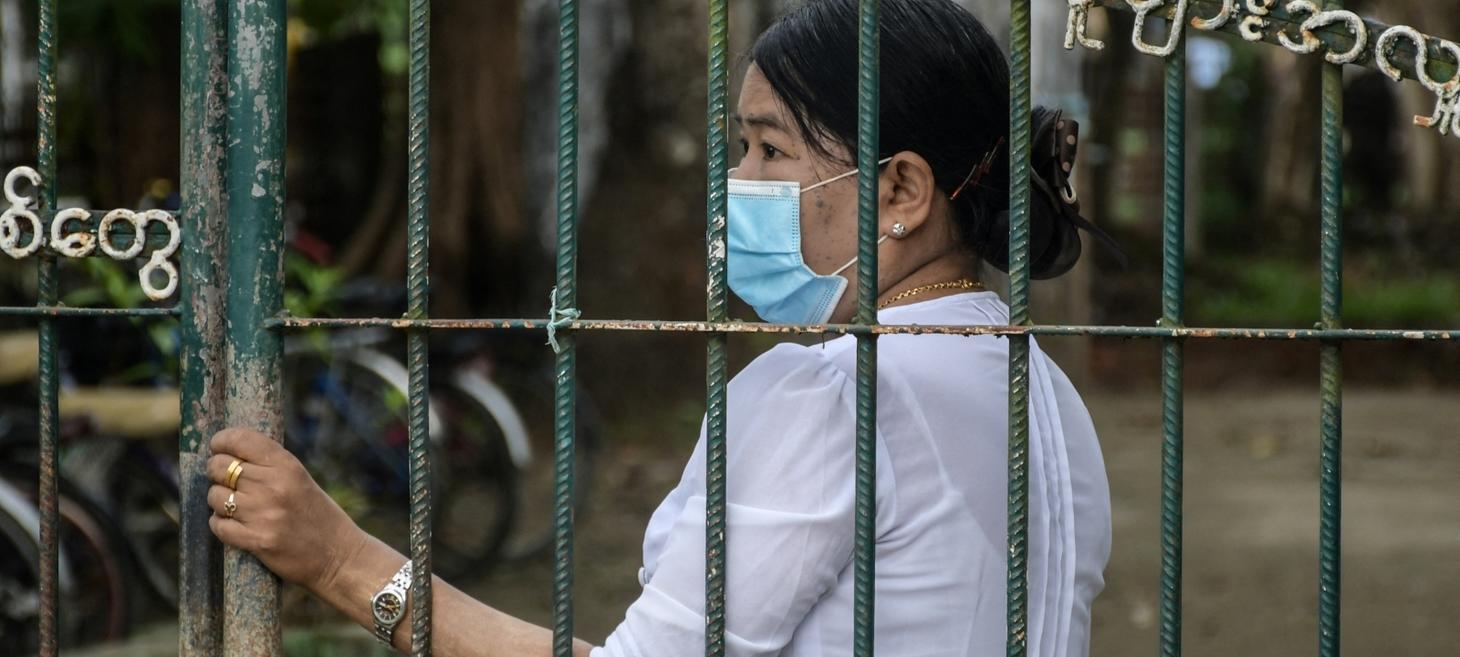
Unpaid and abandoned: Myanmar junta fails displaced civil servants
Displaced civil servants in Myanmar, particularly in the education and health sectors, are facing severe hardships as the military junta fails to reassign or pay them after they fled conflict zones. Many, like Daw Kyawt Kyawt Khin, have been left without salaries for months, struggling to survive in new locations with higher living costs. The bureaucratic process for salary payments is highly centralized and easily disrupted by conflict, leaving many civil servants unpaid. Attempts to join new schools as "associate teachers" often require bribes, adding to their financial burdens. This situation reflects the broader challenges faced by civil servants who expected loyalty to the regime to be rewarded but instead find themselves abandoned by an inflexible bureaucracy amidst ongoing conflict.
Humanitarian
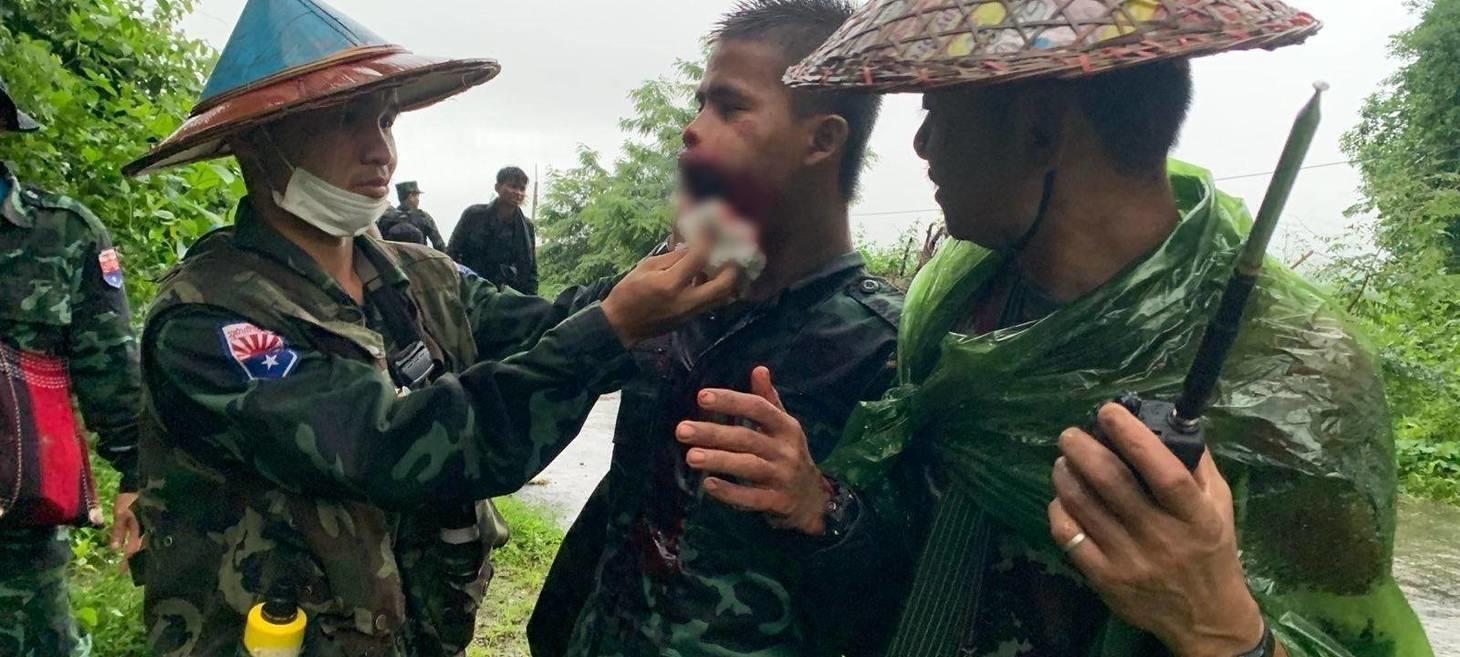
The Perfect Fit: Lifesaving Medical Equipment Travels to the Battlefield
n Papun, Karen State, Burma, the Free Burma Rangers (FBR) played a crucial role in saving the life of a young resistance soldier who suffered a severe jaw injury during a battle led by the Karen National Liberation Army against the Burma Army. Amidst the chaos, Paul, a medical volunteer with FBR, provided a lifesaving tracheostomy tube that was a perfect fit for the injured soldier, allowing emergency medical staff from Earth Mission to perform a high-risk tracheostomy procedure successfully. This equipment, carried over 250 miles through challenging conditions, exemplified the critical support FBR provides in bridging the gap between frontline injuries and advanced medical care. The young soldier was stabilized and later transferred to a better-equipped hospital, where he continues to recover, highlighting the impact of timely medical intervention in conflict zones.

IDPs Face Food Shortages in Palaw Township, Tanintharyi Region
Displaced people (IDPs) in Palaw Township, Tanintharyi Region, are experiencing severe food shortages due to ongoing conflict that began on October 14 near Kye Village. The prolonged fighting has prevented residents from returning home, a departure from past conflicts that typically allowed for brief evacuations. The situation is exacerbated by junta warships at sea, which have halted local fishing activities, a crucial food source. Approximately 16,200 IDPs are currently sheltering in the township, with over 2,700 displaced long-term. The increased military presence and attacks by junta forces on resistance groups have intensified the conflict, making it unsafe for villagers from 15 affected villages to return. Aid workers warn that if the fighting continues, IDPs will face additional hardships, including inadequate long-term accommodation.
Military
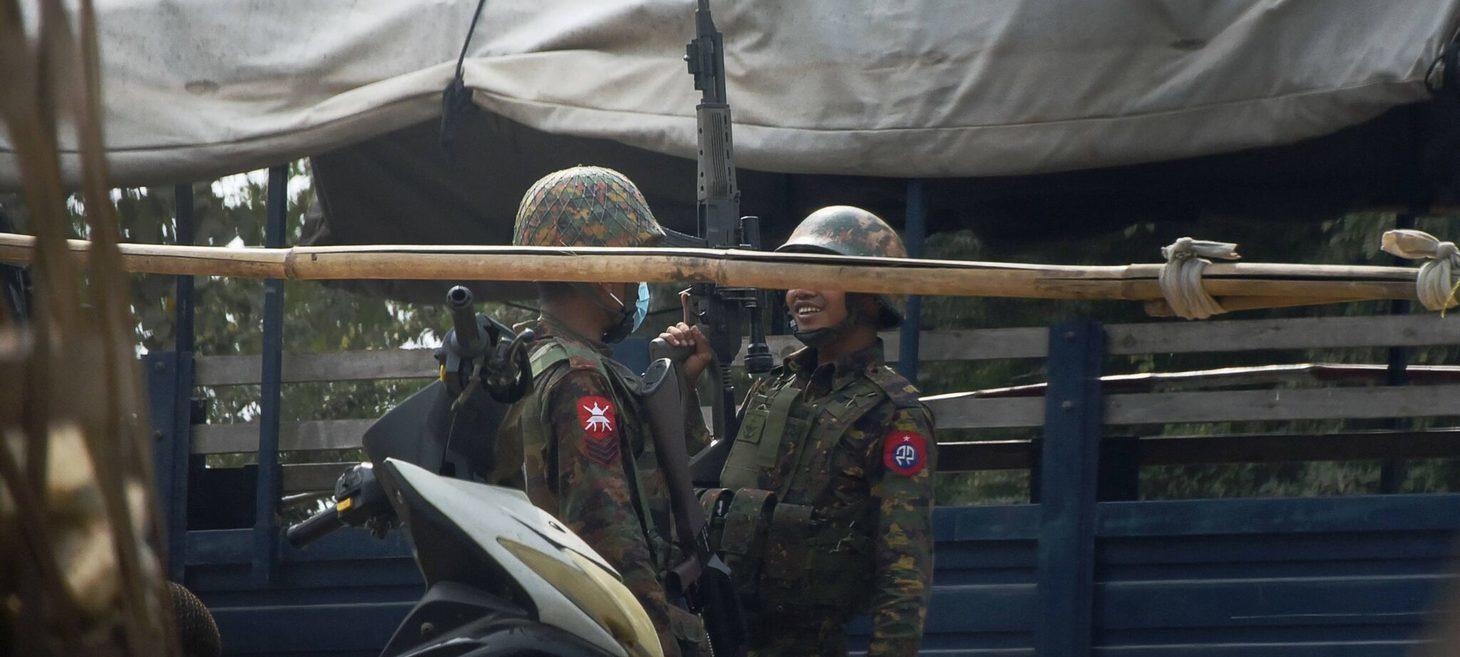
As Myanmar’s war drags on, junta soldiers seek their fortunes on the frontlines
As Myanmar's conflict continues, some soldiers in the military junta are finding opportunities for personal gain by looting in conflict zones. While top military officials have long benefited from corruption, rank-and-file soldiers are now seeking deployment to these areas to profit from the spoils of war. They seize valuables such as cash, mobile phones, and jewelry from homes abandoned by civilians fleeing the junta's raids, particularly in central Myanmar. This opportunistic behavior highlights the complex dynamics within the military, where the ongoing war has created a lucrative, albeit dangerous, environment for soldiers willing to exploit the chaos for financial gain.
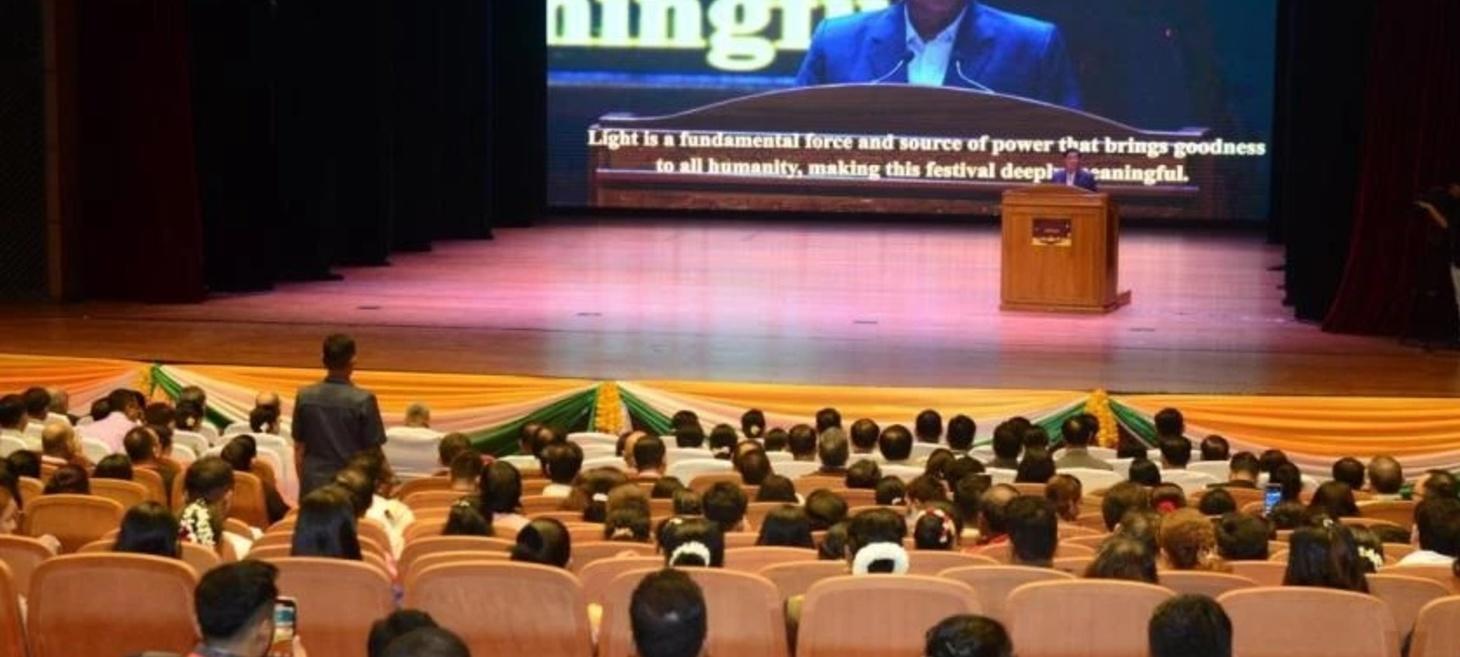
SAC Chairman: Foreign provocations fuel internal conflicts, violence in Myanmar - Nation Thailand
At a Deepawali event in Yangon, Senior General Min Aung Hlaing addressed the ongoing conflicts in Myanmar, attributing them to foreign instigations that exploit political, ethnic, and religious tensions. He emphasized the importance of unity among Myanmar's diverse ethnic and religious groups, urging mutual respect and friendship to foster national welfare. Min Aung Hlaing criticized the failure to resolve political issues through political means and condemned the influence of foreign provocations leading to violence. He reiterated his commitment to restoring democracy and called for collective efforts to resolve conflicts swiftly. Highlighting the government's support for religious and ethnic celebrations, he advocated for unity to transform Myanmar's diversity into strength, expressing hope for continued solidarity and resilience.
Politics
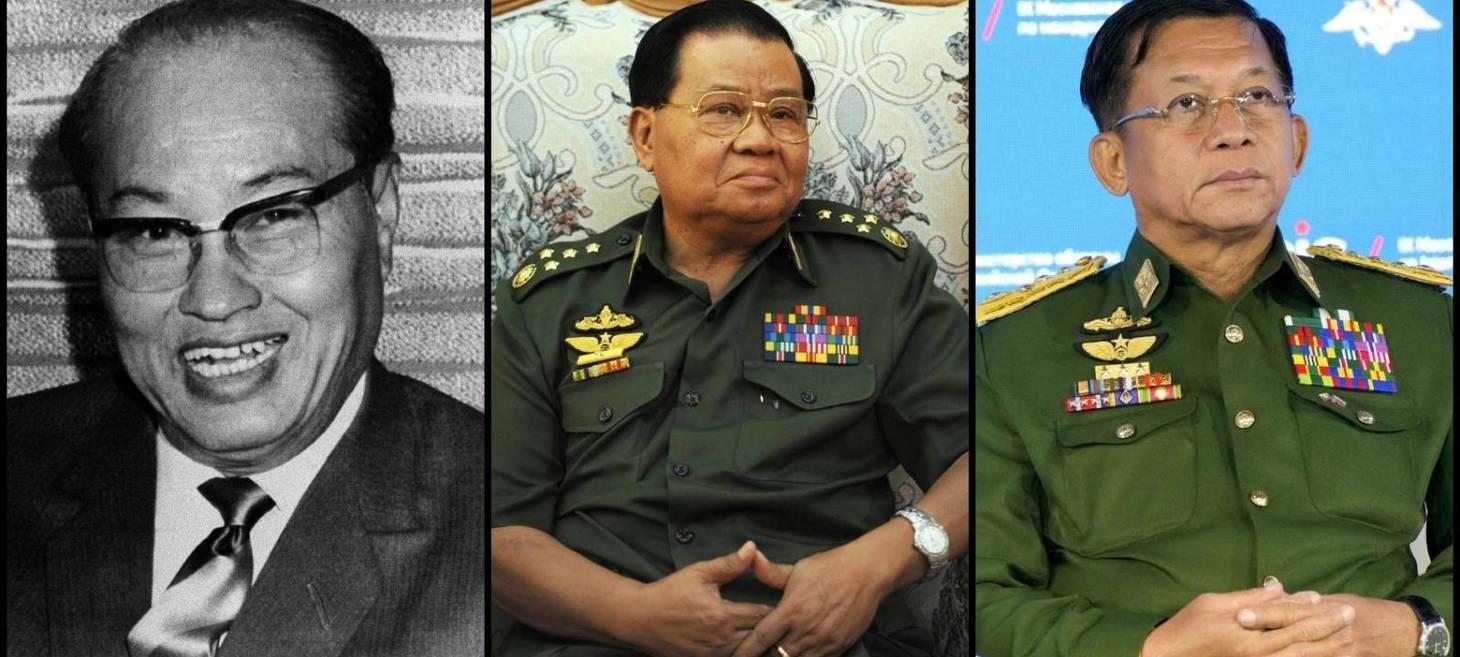
Purging Predecessors: Inside the Ruthless Playbook of Myanmar’s Dictators
Myanmar's dictators have historically employed a ruthless strategy of purging their predecessors to consolidate power and eliminate potential threats. This pattern of political purges is deeply ingrained in the country's military leadership, reflecting a broader culture of paranoia and control. The current junta, following the February 2021 coup, continues this tradition by targeting former leaders and officials from previous administrations to secure its dominance. These actions are part of a calculated effort to dismantle any remnants of opposition and ensure the junta's unchallenged rule, perpetuating a cycle of fear and repression within Myanmar's political landscape.
Sanctions

UK imposes new sanctions on Myanmar military
The UK government has announced new sanctions targeting six entities involved in supplying aviation fuel and restricted goods, such as aircraft parts, to the Myanmar military. These measures aim to limit the military's capacity to carry out airstrikes against civilians, which are considered severe human rights violations. While Burma Campaign UK welcomed the sanctions, they criticized the UK for acting too slowly and urged the government to extend sanctions to Chinese and Vietnamese companies that supply jet fuel to Burmese firms. These actions are part of broader international efforts to pressure Myanmar's military regime and curb its oppressive actions against civilians.

EU Sanctions Three Karen BGF Leaders
TThe European Union (EU) has imposed sanctions on leaders of the Karen Border Guard Force (BGF), including Brigadier General Saw Chit Thu, for their involvement in scam operations in Myawaddy Township, a hub for transnational crime such as online fraud, drug and human trafficking, and severe human rights abuses like forced labor and torture. These sanctions also target the Chit Lin Myaing (CLM) company, which collaborates with Myanmar's military by informing on government opponents and forcibly recruiting soldiers. Despite the sanctions, Major Saw Tin Win, a BGF leader, dismissed their impact, arguing that their operations are local and questioning the EU's ability to enforce actions against them. The EU's sanctions now cover 106 individuals and 22 entities related to Myanmar, involving asset freezes and travel bans for those named.